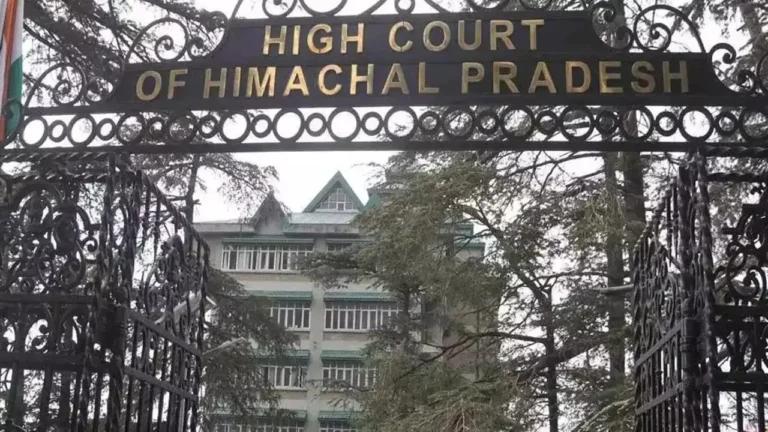In a significant ruling, the Himachal Pradesh High Court, led by Justice Rakesh Kainthla, has held that Section 31 of the Protection of Women from Domestic Violence Act, 2005, applies strictly to breaches of protection or interim protection orders, not to maintenance, compensation, or residence orders. This clarification came during the hearing of Akshay Thakur vs State of Himachal Pradesh.
Background of the Case:
Akshay Thakur, the petitioner, approached the court seeking the quashing of an FIR registered against him under Section 31 of the Domestic Violence Act. The FIR was based on allegations made by his wife, Pooja Devi, who claimed he failed to provide her with maintenance and a separate residence as ordered by the trial court.
Read Also:- Encroacher Cannot Seek Injunction Against True Landowner, Reiterates Himachal Pradesh High Court
According to the complaint, the trial court had directed Thakur to provide a room, kitchen, and bathroom, pay ₹10,000 as compensation, and ₹4,000 per month as maintenance. When he failed to comply, the trial court referred the matter to the police under Section 156(3) of the Criminal Procedure Code, resulting in the FIR.
“Section 31 penalizes only the violation of protection orders, not all types of orders under the Act.” — Himachal Pradesh High Court
The petitioner’s counsel argued that Section 31 of the DV Act penalizes only the breach of protection orders passed under Section 18 of the Act. Maintenance and residence orders are dealt with under Sections 19 and 20 and do not fall under the definition of a “protection order.” Hence, the FIR was not valid.
On the other hand, the state argued that the Domestic Violence Act should be interpreted liberally to ensure the protection of women and claimed that non-compliance with monetary or residence orders should also be punishable.
Court’s Analysis and Findings:
The High Court examined the language of Section 31, which clearly states that punishment applies only for the breach of “protection order” or “interim protection order.” These are defined in Section 18 and relate specifically to acts that prevent further domestic violence.
Maintenance and residence orders, issued under Sections 19 and 20 respectively, are separate and not covered under the scope of Section 31. The court emphasized that criminal statutes must be interpreted strictly, as they impact a person’s liberty.
Citing various precedents, including Vidarbha Industries Power Ltd. v. Axis Bank Ltd. and Mohd. Wajid v. State of U.P., the court reiterated that where the law is clear and unambiguous, it must be interpreted literally without stretching its meaning.
Read Also:- SC Defends Section 498A: One Misuse Can't Overshadow Hundreds of Real Domestic Cruelty Cases
“Criminal statutes must be strictly interpreted; courts cannot add to their scope through liberal interpretation.” — Justice Rakesh Kainthla
Justice Kainthla ruled that the trial court erred in directing the police to register an FIR for non-payment of maintenance and residence orders. Since these do not qualify as protection orders, their violation cannot be punished under Section 31 of the DV Act.
As a result, the High Court quashed FIR No. 9/2018 and all related proceedings, concluding that the direction by the lower court had no legal backing under Section 31.
Case Name: Akshay Thakur v/s State of H.P. & Ors.
Case No.: Cr.MMO No. 1079 of 2024
Date of Decision: 25.04.2025
For the Petitioner : M/s Aprajita and Ajay Thakur, Advocates.
For Respondents No.1 to 3 : Mr. Prashant Sen, Deputy Advocate General.















